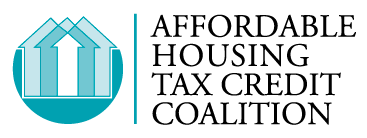| Senate Finance Committee Ranking Member Ron Wyden (D-OR) and lead sponsor of the Affordable Housing Credit Improvement Act Sen. Maria Cantwell (D-WA) have introduced the Emergency Affordable Housing Act of 2020, legislation mirroring the Housing Credit provisions included in House leadership’s recently released infrastructure proposal, the Moving Forward Act (learn more on our blog).
The AHTCC applauds the inclusion of many of the AHTCC’s priorities to strengthen the Housing Credit and address several barriers to Housing Credit development brought on by the COVID-19 crisis. Sens. Michael Bennet (D-CO) and Ben Cardin (D-MD) also signed on to the legislation as original co-sponsors. See the press release, one-page summary, detailed summary, and bill text.
Though the Emergency Affordable Housing Act is not expected to move through the Senate as a standalone bill at this time, it demonstrates support for the Housing Credit across both chambers and provides the groundwork for proposals to potentially be included in future COVID-19 response legislation, which is currently being discussed in the Senate. The Senate is also expected to consider infrastructure legislation prior to September 30, when the Surface Transportation Act must be reauthorized, which could also provide a vehicle for these priorities.
The Emergency Affordable Housing Act of 2020
The legislation includes the following proposals related to the Housing Credit from the bipartisan Affordable Housing Credit Improvement Act (AHCIA/S. 1703/H.R. 3077):
- Enact a permanent minimum 4 percent Housing Credit rate, which is estimated to finance an additional 126,000 affordable homes over the next decade, according to Novogradac & Co. The rate would apply to buildings placed in service after January 20, 2020.
- The AHTCC and our partners worked to ensure the effective date for this provision was changed from that originally included in the Moving Forward Act, which applied to properties that received a determination of Housing Credits after December 31, 2019. We expect this change to be made to the Moving Forward Act as well.
- Increase the annual Housing Credit allocation from $2.81 per capita to $4.56 per capita, and from $3,217,500 to $5,214,051 for the small state minimum, an increase of more than 60% over current levels. The phase-in would be accelerated over two years instead of the five initially proposed in the AHCIA.
- Provide basis boosts to facilitate developments providing homes to hard-to-reach communities and populations:
- A 50 percent basis boost for developments serving extremely low-income tenants in at least 20 percent of units, along with a 10 percent increase in Housing Credit allocations on top of the increase already proposed, to be used specifically for these developments,
- A 30 percent basis boost for properties in rural areas through designation as Difficult to Develop Areas,
- A 30 percent basis boost for properties in Native American areas through designation as Difficult to Develop Areas, and
- The ability for the state housing agency to provide a 30 percent basis boost as needed for properties financed by Housing Bonds by treating such properties as located within Difficult to Develop Areas.
- A prohibition on local approval and contribution requirements to help address NIMBY issues.
The legislation also includes several provisions that the AHTCC and our partners had proposed as part of the COVID-19 response:
- Lower the “50 percent test” threshold of Housing Bond financing required in order to access 4 percent Housing Credits to 25 percent, which could provide as many as 1.4 million affordable homes over the next decade.
- Extend two key Housing Credit deadlines:
- A 12-month extension of the 10 percent test, so that at least 10 percent of the anticipated basis of a development can be expended within two years of the Housing Credit allocation instead of one, and
- A 12-month extension of the rehabilitation expenditure deadline, from 24 to 36 months.
- Note that the AHTCC and our partners are also awaiting guidance from the IRS on these and other deadline extensions, as well as other flexibilities needed in light of the COVID-19 crisis. In the meantime, some relief has been provided, including a twelve-month extension of the placed in service deadline, by virtue of other disaster-related guidance having been issued.
- Address “adjuster” issues that have arisen from the COVID-19 crisis by temporarily allowing owners to elect to receive 150 percent of the Housing Credits otherwise allowable for a building in a project’s first or second tax credit year, reducing the credit for the subsequent years on a pro-rata basis. This would help to cover financing gaps brought about by significant financial penalties, known as “adjusters,” caused by the delays resulting from the COVID-19 crisis. The proposal would apply to buildings for which the first-year credit period ends after July 1, 2020, and before July 1, 2022, which also have construction or leasing delays occurring after January 31, 2020, due to COVID-19.
The legislation also includes two other Housing Credit provisions:
- A new 25 percent low-income housing supportive services credit to cover a portion of costs for providing certain resident services at Housing Credit properties, which would be paid through a “qualified supportive housing reserve fund”.
- Note that this provision was also introduced as separate standalone legislation in the House today by California Democrats Reps. Jimmy Gomez, Mike Thompson, Linda Sanchez, Judy Chu, and Jimmy Panetta (see Rep. Gomez’s press release and the bill text).
- Curtail the use of Qualified Contracts by repealing the option going forward and changing the formula that determines purchase price on existing properties. This proposal is based on the Save Affordable Housing Act of 2019 (S. 1956/H.R. 3479).
|


Comments are closed.